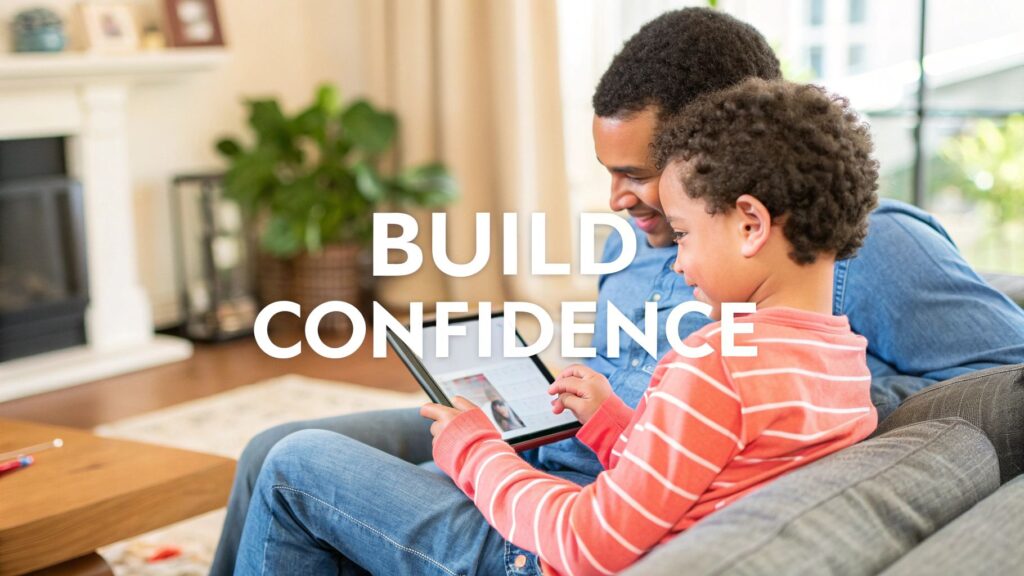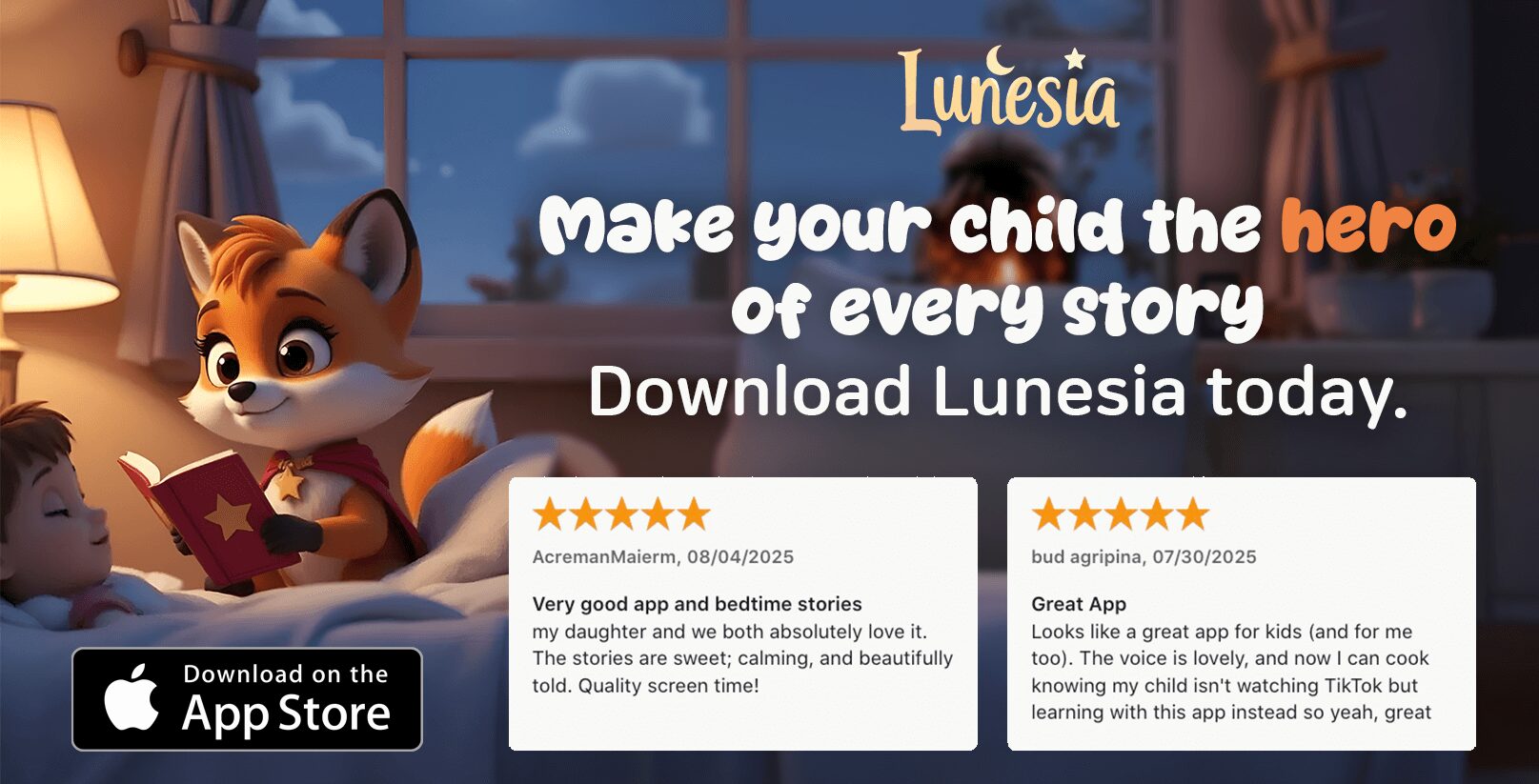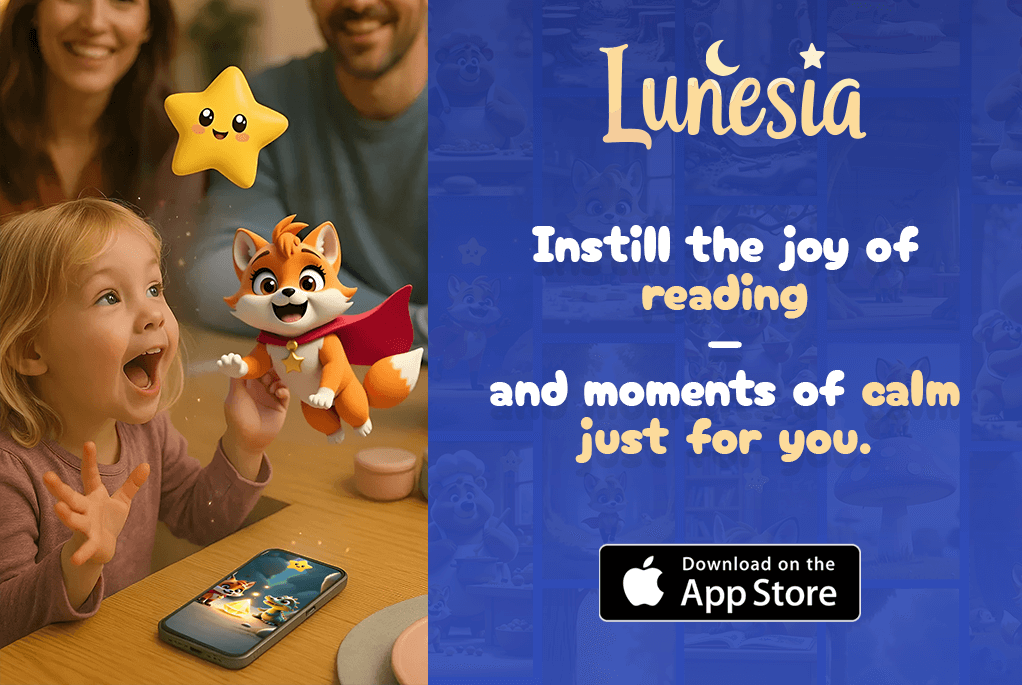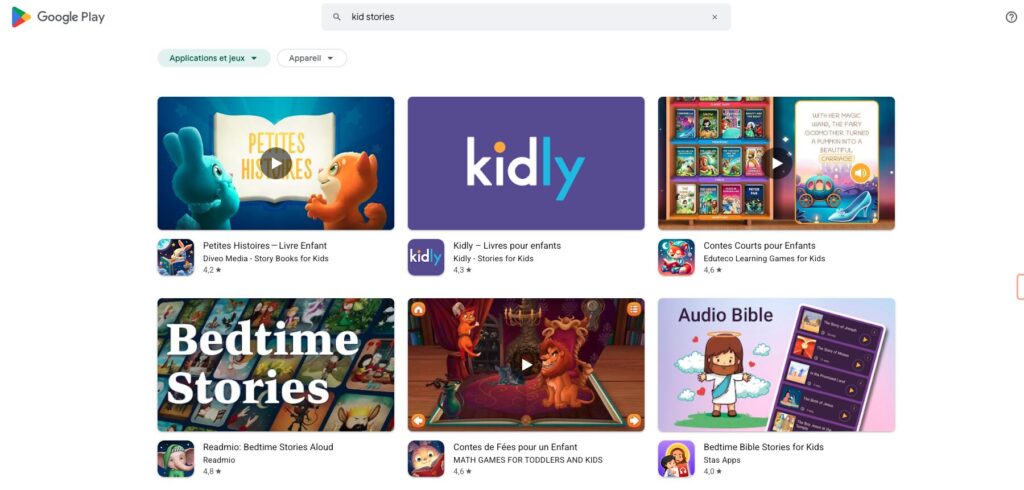Ever wonder how to raise a child who believes in themselves, even when you're not around to cheer them on? It isn’t about grand gestures or big speeches. It’s about the small, everyday moments—the ones you might be missing—that quietly build a foundation of unshakeable self-worth. It’s woven into the daily interactions that prove they can handle challenges, turning moments of doubt into the building blocks for a resilient sense of self.
Why Nurturing Confidence Early Matters Most
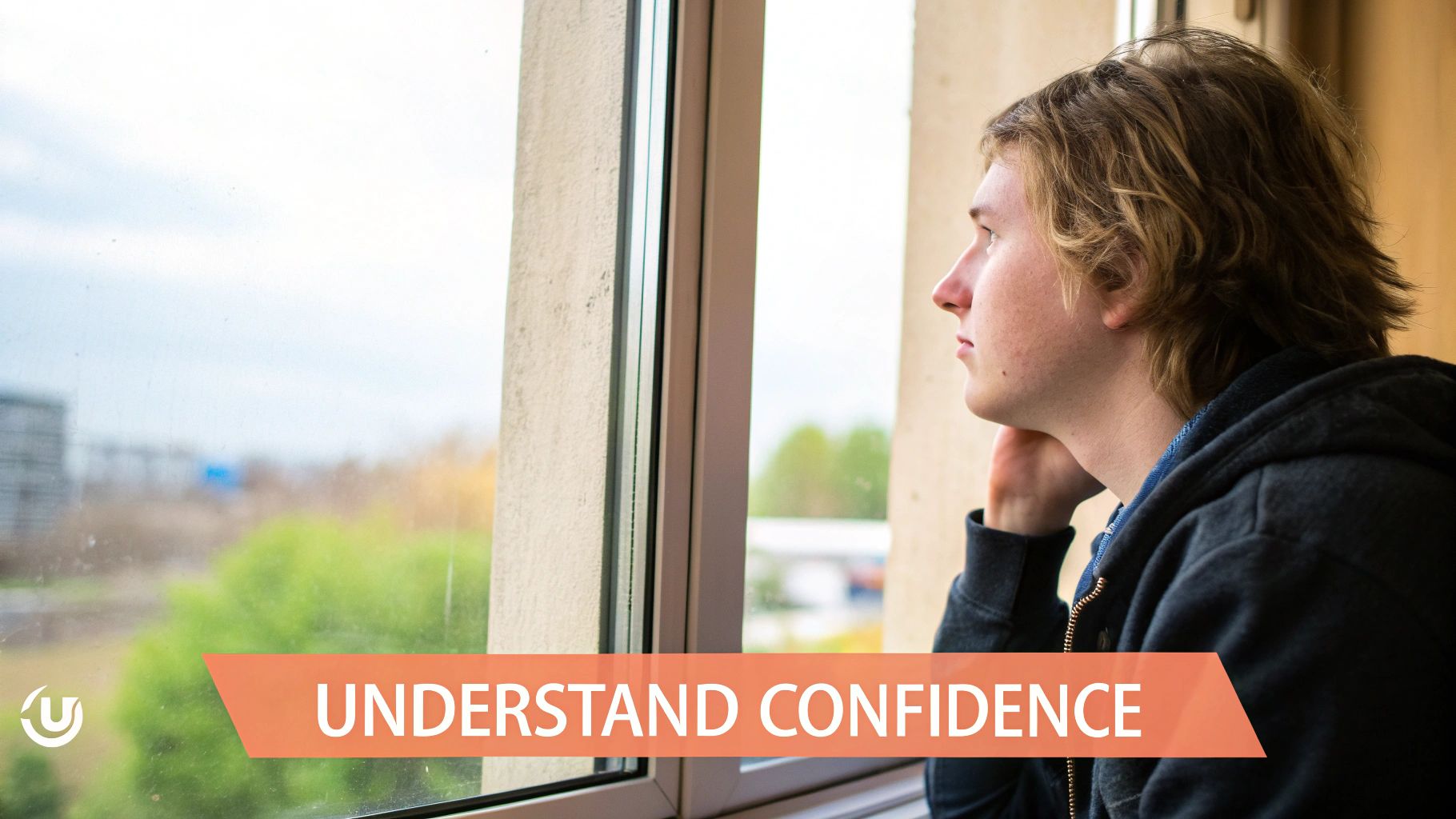
Have you ever seen your child hesitate before trying something new, that flicker of doubt in their eyes? That precise moment is where true, lasting confidence is born. It’s not about buying them more toys or telling them they’re perfect; it’s about the consistent, quiet messages we send that whisper, 'You are capable, you are loved, and you can handle this.'
This is especially critical between the ages of 2 and 7. Why then? Because this is when a child’s brain is rapidly forming core beliefs about the world and their place in it. According to child development experts, nearly 90% of brain development happens before the age of five. This means the foundations for resilience, courage, and self-worth are being laid right now, in your living room, during snack time, and at bedtime.
Small Moments, Big Impact
So, how do you build that confidence in a way that’s practical, not exhausting? It starts by shifting your perspective on daily routines.
- Turn routines into rituals: Getting dressed isn't just a chore; it's a chance for your 3-year-old to master a button or pick their own (wonderfully mismatched) socks.
- Transform questions into choices: Instead of a vague, "What do you want to eat?" offer two positive options. "Would you like apple slices or a banana?" This small shift gives them a powerful sense of control and respect.
- Reframe failures as practice: When the block tower tumbles, is it a disaster? Or is it just a chance to see what works next time? Your calm reaction is everything.
You are their emotional mirror. The way you react to their struggles—with patience and encouragement—teaches them how to react to themselves. Your calm becomes their inner voice of reassurance.
This is exactly why interactive storytelling is such a game-changer. What if your child could practice being brave before they ever face a real-world fear? When children aren't just passively listening but are actively making decisions that shape an adventure, they are rehearsing confidence in a safe, imaginative space.
Think about it. In a Lunesia story, choosing to help a scared dragon or share a snack with a lonely gnome isn't just fun—it’s a workout for their kindness and courage muscles.
A crucial, and often overlooked, part of this process is ensuring children see themselves reflected positively in the world around them. You can learn more about how representation in children's books builds self-esteem and how powerful that can be.
Master Small Wins to Build Big Belief
Have you ever heard that little sigh, followed by, “I can’t do it”? As a parent, that phrase can feel like a punch to the gut. But what if I told you it’s not a final verdict? It’s actually an invitation—an opportunity for you to step in and show your child just how capable they really are.
The secret is turning that roadblock into a starting line. We do this by creating "mastery experiences." Remember the quiet pride that lights up their face when they finally button their own coat or pour their milk without a single spill? These aren't just tasks; they're tangible proof of their growing competence. These are the small wins that build big belief.
Scaffolding Success Step-by-Step
Instead of asking your four-year-old to tackle a huge challenge all at once, you can "scaffold" their success by breaking it down. The overwhelming command to "clean your room" becomes a fun, manageable game when you ask, "Can you find all the blue LEGOs and put them in this box? Awesome! Now, let’s find all the teddy bears."
This approach isn’t just about getting chores done. It’s a foundational strategy for building genuine self-belief by setting clear, achievable goals that let them feel successful, over and over again.
The visual below really brings this idea to life, showing how a big goal can be broken down into small, confidence-building steps.
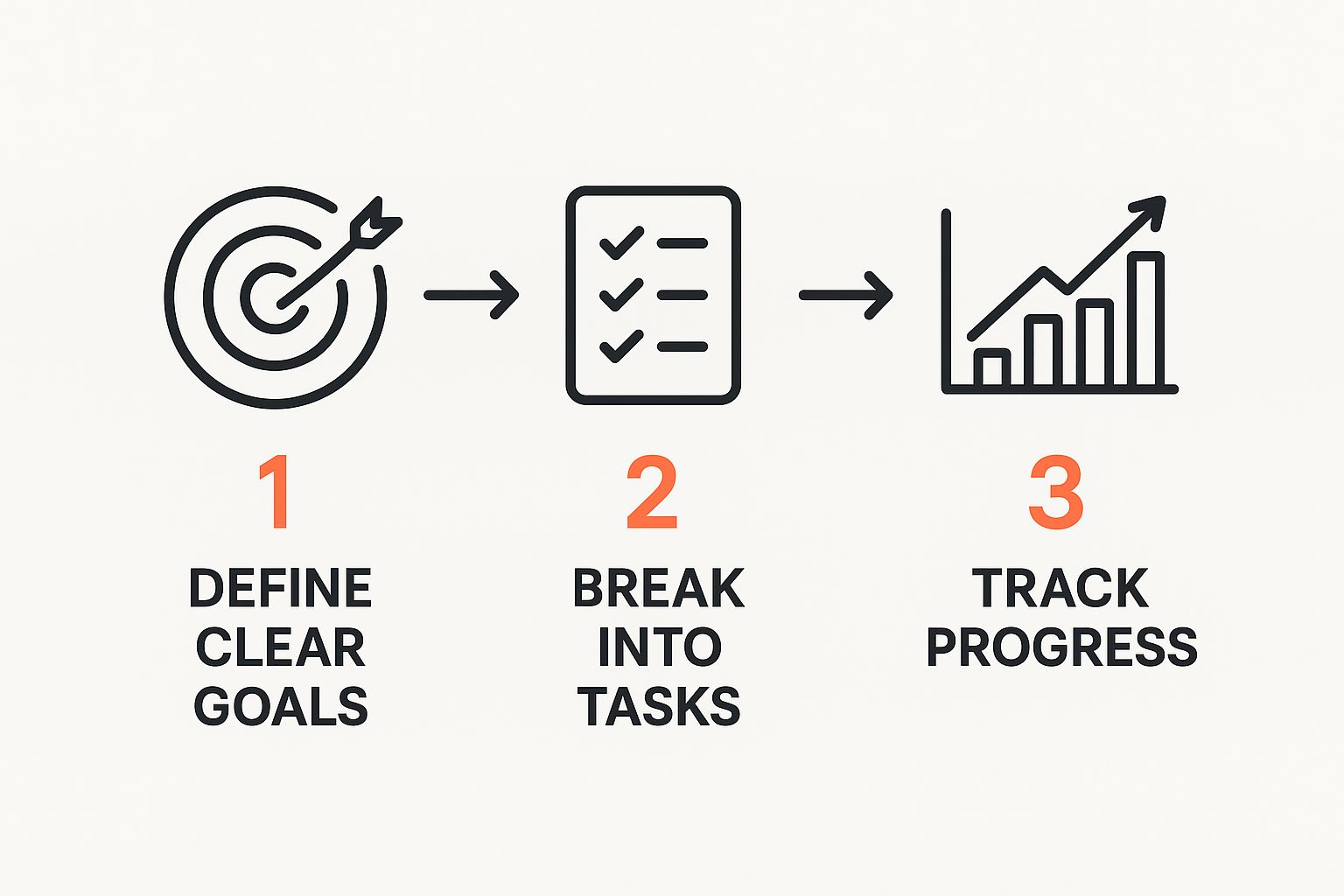
As the infographic shows, something as simple as defining a goal, breaking it into smaller pieces, and celebrating progress can make any challenge feel doable for a young child.
This isn't just a parenting hack; it's rooted in solid psychology. Pioneering psychologist Albert Bandura’s research on self-efficacy—a person's belief in their own ability to succeed—showed that it's deeply connected to confidence. In fact, individuals with strong self-efficacy are 50% more likely to persevere through challenges.
By helping your child master small, concrete tasks, you are directly fueling their self-efficacy. Each small win whispers to their heart, "You can do hard things."
From Everyday Tasks to Confidence Boosters
I've found it helpful to reframe common challenges into opportunities for my child to feel capable. It's a simple mental shift that makes a huge difference.
Here’s how to reframe common challenges into opportunities for your child to feel capable and successful.
| Common Challenge ('I can't…') | Confidence-Building First Step |
|---|---|
| "Tie my shoes." | "Let's just practice making the 'bunny ears' with one lace today." |
| "Clean my whole room." | "Can you find all your stuffed animals and put them in the basket?" |
| "Write my name." | "How about we just draw the first letter of your name together?" |
| "Get dressed by myself." | "You pick out the shirt, and I'll help you with the buttons." |
This isn't about lowering expectations; it's about building a ladder of success, one rung at a time, so they can eventually climb on their own.
Practicing Confidence in a World of Stories
So how can you make this a regular part of your day, even when life gets hectic? This is where an app like Lunesia can become a real game-changer. Its interactive stories are built around this very principle.
Within these magical adventures, a child’s choices lead to direct outcomes, letting them practice decision-making and problem-solving in a fun, safe world.
- When they decide to share a magical berry with a sad bear, they see the immediate positive result of their kindness.
- When they choose to climb the sparkling mountain instead of taking the easy path, they experience a small, virtual taste of courage.
Each choice reinforces the powerful idea that their actions matter, building the mental muscles for real-world confidence. It’s a playground for their developing sense of self.
For a broader perspective, exploring various strategies to build self-confidence can add even more tools to your parenting toolkit. As these tiny wins accumulate, you're not just raising a child who can follow instructions; you’re raising one who trusts their own judgment. And all the while, you get a few precious, guilt-free minutes for yourself, knowing they're safely learning and growing.
Give Them Choices to Develop Their Voice
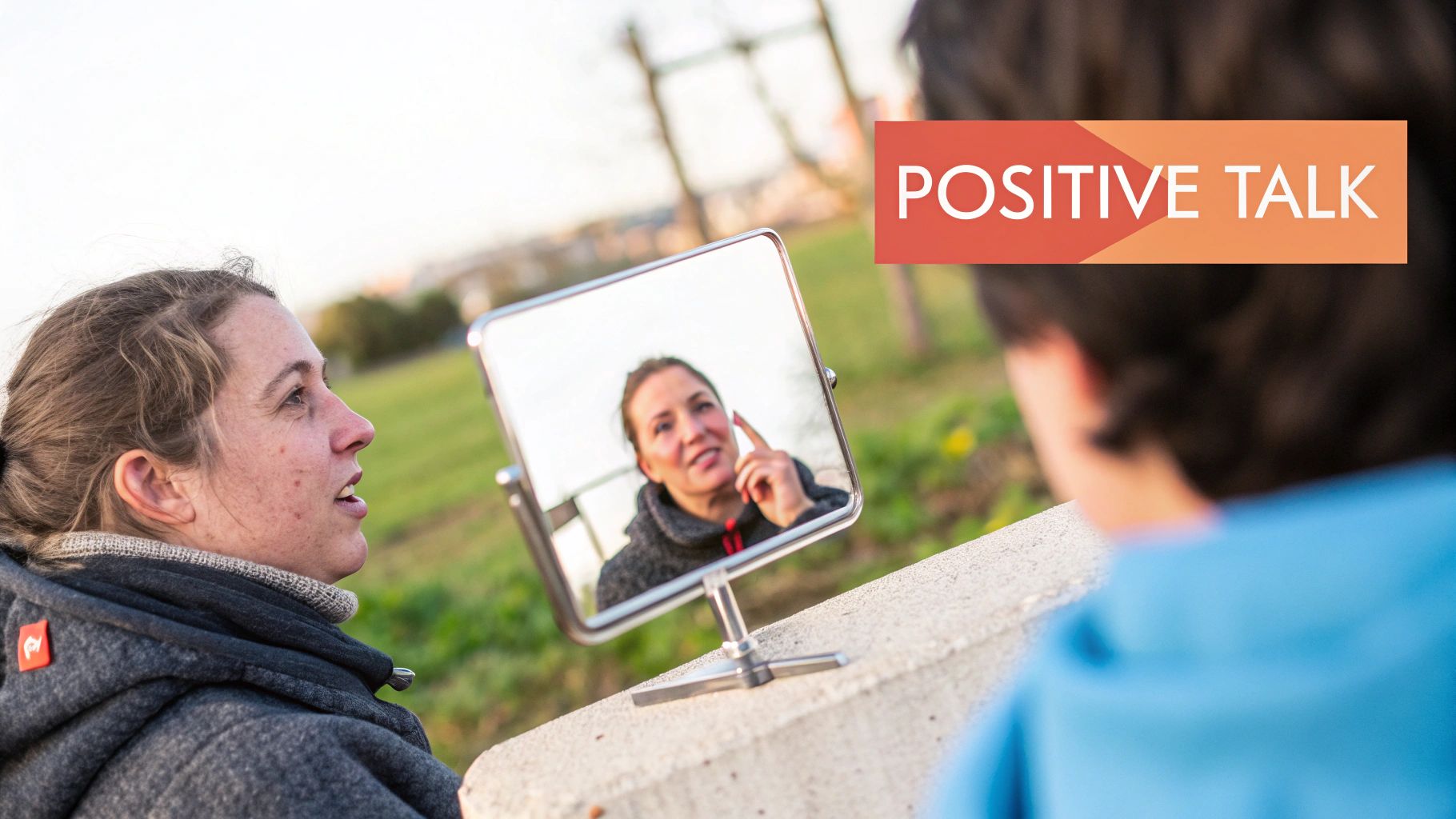
What if you could hand your child a dose of confidence every single morning before they even have breakfast? It’s simpler than you might think. One of the quickest ways to build their inner strength is by giving them a sense of control over their own little world.
Offering small, manageable choices sends a powerful, unspoken message: "Your opinion matters, and I trust you." This isn't about letting your five-year-old dictate the family vacation—that would just be overwhelming. Instead, it’s about providing limited, age-appropriate options that empower them.
From Power Struggles to Powerful Moments
Think about the classic toddler standoff over putting on a jacket. How can you flip that script? Instead of getting into a battle of wills, you can turn it into a moment of empowerment.
Instead of asking a broad, paralyzing question like, "What do you want to wear?" try framing it with simple choices:
- "It's chilly! Do you want to wear your blue jacket or your red sweater today?"
- "Should we read the book about the brave bear or the one about the speedy train?"
- "Would you like apple slices or a banana with your lunch?"
Each of these small decisions is a workout for their autonomy. They learn that their voice has an impact, that their preferences are heard, and that they can make good choices. This simple act builds the foundation for bigger decisions later in life.
Every choice you offer is like a single rep at the gym for their confidence muscles. It might seem small at the moment, but the cumulative effect is a child who grows up feeling strong and capable.
This is precisely the environment Lunesia's stories are designed to create. They aren't just passive experiences where your child listens; they are active adventures where they guide the narrative. The app gently prompts them with questions like, "Should the little fox cross the rickety bridge or find another way around?"
By deciding which path a character takes, they see the direct results of their choices in a safe, imaginative space. They're not just hearing about courage—they're practicing it. This builds the mental framework for real-world problem-solving and decision-making, turning storytime into a powerful confidence-building session.
And the best part? While they’re happily immersed in a meaningful, ad-free adventure, you gain those precious, guilt-free minutes to recharge, knowing they’re safe and learning valuable life skills.
Turn Setbacks into Comebacks

We've all seen it. The magnificent tower of blocks comes crashing down, followed instantly by a flood of tears. It's so easy to view these moments—the tantrum over a broken crayon, the nighttime fear of monsters—as little hiccups in the day. But what if they’re actually opportunities in disguise?
These big, messy emotions are a completely normal and healthy part of growing up. What matters most is how we respond. Our reaction in these exact moments is what forges resilience, which is the true bedrock of lasting confidence. After all, confidence isn't about never failing; it's about knowing deep down that you have what it takes to bounce back.
The first, most important thing you can do is validate their feelings. Get down on their level, look them in the eye, and show them you see their struggle. A simple, empathetic, "Wow, I can see you're so frustrated that your block tower fell over," works wonders. This small act tells them their emotions are okay, normal, and understood.
From Tears to Tries
Once your child feels heard, you can gently pivot from validating the emotion to exploring a solution. This isn't about swooping in to fix the problem for them. It’s about guiding them to discover their own power.
You might say something like, "That was a big crash! What if we try building it again, but with the bigger blocks on the bottom this time?" This simple question shifts their focus from the setback to the comeback. Suddenly, it’s not a crushing defeat; it's a fun puzzle to solve together.
Modeling this kind of emotional regulation is one of the most powerful gifts you can give your child. When they see you stay calm and solution-focused, they learn to do the same. This is how you go about teaching resilience to kids in a way that truly sticks—by living it right alongside them.
Confidence isn’t built when things are easy. It’s forged in the messy middle, in the space between falling down and deciding to get back up again. Your gentle guidance is the bridge that helps them cross it.
Practicing Resilience Through Play
So, how do you make this a regular part of their world without it feeling like a lesson? This is where imaginative play becomes your secret weapon. The characters in Lunesia’s interactive stories are constantly modeling this exact process, turning storytime into a safe space to practice resilience.
In a Lunesia adventure, a character might:
- Feel disappointed when their magical potion doesn’t work on the first try.
- Get scared when they have to cross a dark, sparkling cave.
- Feel frustrated when they can’t solve a tricky riddle right away.
But the story never ends there. By making choices to help the character—try a new ingredient, find a friendly light bug, ask a wise owl for a hint—your child is actively participating in the comeback. They see firsthand that setbacks are just plot twists, not the end of the story.
This gives them a mental script to draw on for their own challenges. And while they’re bravely navigating these fictional worlds and learning priceless emotional skills, you get a moment of peace. It's a truly guilt-free break, knowing they are safely immersed in an adventure that’s actively building the confidence they’ll carry for a lifetime.
Use Praise That Powers a Growth Mindset
That automatic "Good job!" we all say? It’s a loving reflex, but what if your words could do so much more? What if your praise could become one of the most powerful tools you have to build lasting, unshakeable confidence in your child?
The secret is to shift your focus from the final outcome to the incredible effort they put in. This small change helps your child develop a growth mindset—the powerful belief that their abilities aren’t fixed, but can actually grow with practice and persistence. It’s the difference between celebrating perfection and celebrating progress.
From "You're Smart" to "You Worked So Hard"
Imagine your five-year-old finally clicks the last piece of a tricky puzzle into place. That proud little smile! Instead of saying, "You're so smart for finishing that!" try this: "I love how you kept turning the pieces until you found the right spot. You worked so hard on that!"
See the difference? The first praises a fixed trait ("smart"), which can make kids afraid to try things they might not be "smart" at. The second celebrates the process—the trying, the thinking, the not giving up. This is how you build a child who isn’t afraid to fail, because they learn that the real win is in the effort itself.
This approach is incredibly effective. Think about it: research suggests that about 85% of people experience low self-confidence at some point, often due to setbacks. Building confidence by celebrating effort is a proven way to counter that. You can dig into more insights about consumer confidence and self-belief here.
Praise the process, not the person. When you do, you're teaching your child that their worth isn't tied to getting everything right on the first try. It’s tied to their courage to try in the first place.
Real-World Praise Swaps
Here are some practical swaps you can use today to start building that growth mindset in your home:
-
Instead of: "You're a natural artist!"
Try: "I can see how much thought you put into choosing those colors. Tell me about your drawing!" -
Instead of: "Great job sharing!"
Try: "That was so kind of you to offer your friend a turn. I bet that made them feel happy." -
Instead of: "You did it perfectly!"
Try: "Look at how much you've improved since you started practicing! Your hard work is really paying off."
This is precisely how Lunesia’s interactive stories reinforce positive values. Within the app, the narrative often celebrates a character's courageous choice or kind action, not just the successful outcome. It’s a fun, engaging way to show children that trying hard and being kind are the real victories.
These small shifts in language are some of the most effective emotional intelligence activities for kids, teaching them to value persistence and empathy. And while they're absorbed in a story that builds their character, you get a moment of peace, knowing their screen time is genuinely helping them grow.
Find Your Guilt-Free Parenting Moments
Let's be honest for a second. Parenting is a marathon, and you absolutely need moments to catch your breath. But how do you find that time without that little voice of guilt whispering in your ear?
Here’s the secret I wish someone had told me sooner: fostering independence in your child is the key to carving out that essential time for yourself. It’s a total win-win.
Imagine your child completely absorbed in a Lunesia story. They aren't just zoning out in front of a screen. Instead, they're actively making choices, guiding a character through an ad-free adventure that teaches them about empathy and being brave.
They're learning and problem-solving, all on their own. And you? You get 20 guilt-free minutes to actually finish your coffee while it’s still hot, fire off that one important email, or just sit in glorious, uninterrupted silence.
Strategic Pauses Power Happy Families
Taking these small breaks doesn't make you a less-engaged parent. It makes you a strategic one. You understand that your own well-being is the foundation of a happy family. When you let your child tackle a challenge on their own, you're not just getting a break; you're giving them the gift of self-reliance.
Empowering your child to navigate a challenge independently is a gift to them. The quiet moment you gain in the process is a gift to yourself. Both are equally important.
For any parent feeling the heat of academic pressures, it can be a huge relief understanding why confidence is more important than grades when it comes to long-term success. By choosing meaningful, safe activities like Lunesia, you’re not just buying time. You’re making a powerful investment in your child's confidence and your own peace of mind.
Have a Question About Building Confidence?
You’re not alone. When you’re in the trenches of parenting, navigating your child’s confidence journey can bring up some common questions. Let's tackle a few of them together.
"What if my child is just really shy?"
I get this one a lot. Is your little one more of a careful observer than a bold adventurer? First off, that’s completely okay! For a shy or fearful child, building confidence isn't about trying to change who they are. It’s about giving them the right tools to navigate the world comfortably, on their own terms.
The secret is to start small. Instead of a huge, bustling playground, maybe try a quiet park early in the morning. Before a playdate, you could chat about what they might do or say, almost like a little rehearsal. This is where I've seen interactive stories work wonders. Lunesia stories often feature characters who are timid at first but find their courage through small, brave choices—it’s the perfect, gentle model for your child to see that it's okay to feel a little nervous and still give something a try.
"How do I deal with meltdowns when they fail?"
Ah, the classic block tower tumble. Those big, tear-filled frustrations are tough, but they are actually golden opportunities in disguise. My go-to strategy here is to connect before you correct.
Before you jump in with solutions, just validate their feelings. A simple, "Wow, it is so frustrating when that happens, isn't it?" can make all the difference. Once they feel heard and understood, you can gently pivot to problem-solving. This shows them that messing up isn’t the end of the world; it’s just part of the process.
The goal isn't to prevent failure. It's to teach them they have the resilience to get back up again.
"Is all screen time bad for building confidence?"
It really, truly depends on the quality of the screen time. Mindlessly watching ad-filled videos? Probably not going to do much for their self-esteem. But what if screen time could be an active, confidence-building session?
That’s what I love about apps like Lunesia. When my kids are in one of the interactive stories, they aren't just watching—they're making decisions and solving problems. They get to practice being kind or brave in a safe, ad-free world. While they’re immersed in a meaningful adventure, you get a guilt-free moment for yourself, knowing they're actually learning valuable life skills. It’s a win for their growth and your well-being.
Ready to transform storytime into a confidence-boosting adventure? Give Lunesia a try and watch your child become the hero of their own story. Download the app and start your free trial today!
